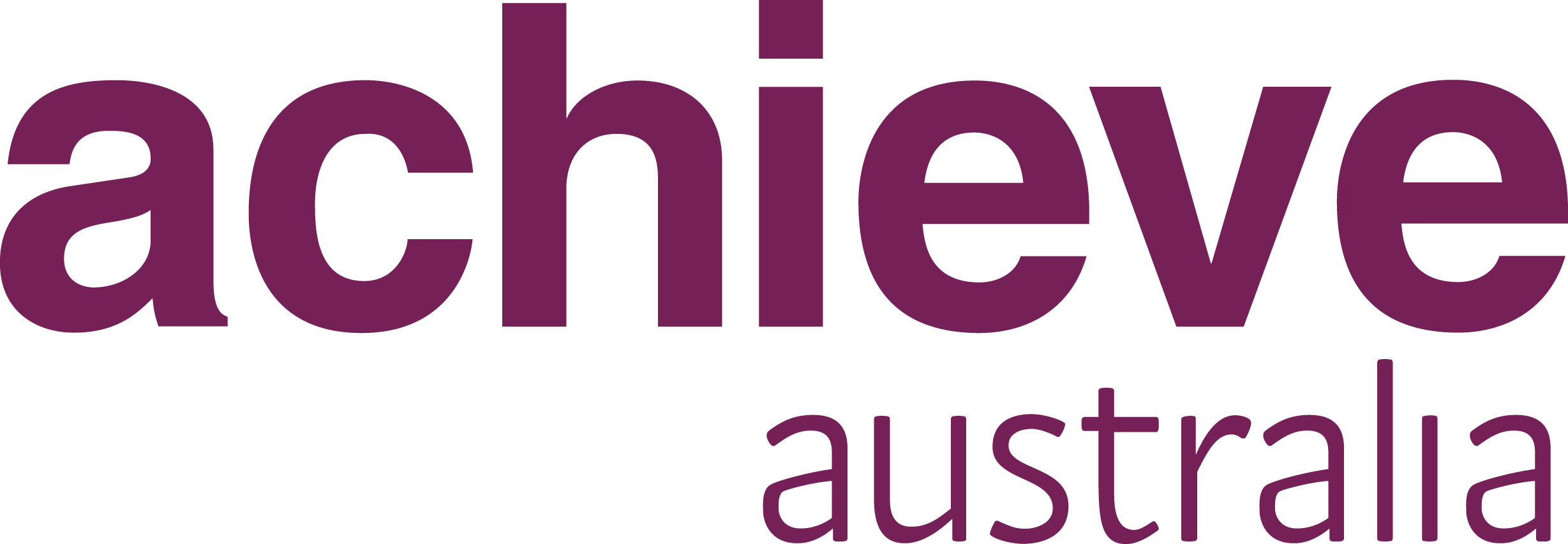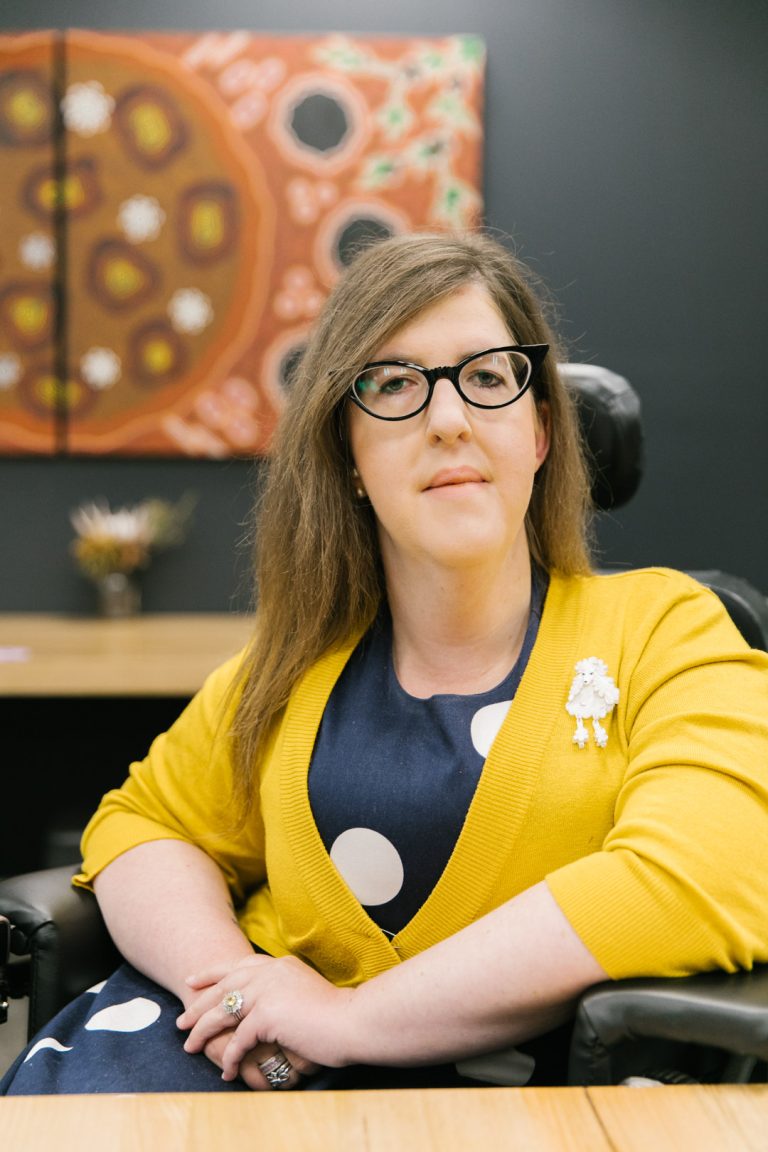December 4, 2023
Lawyer Natalie Wade delivered the inaugural Disability Leadership Oration yesterday highlighting that there is still much work to be done to dismantle the barriers people with disability still face.
The South Australian excelled at school and university before establishing her own law firm, Equality Lawyers, representing people with disabilities and their families. In 2021, she wrote, Disability Rights in Real Life a practical handbook offering insights for pwd, their families, and allies.
The Disability Oration was sponsored by The Achieve Foundation and organised by the Disability Leadership Institute. It was created to be a “clarion call, a resounding invitation to challenge the status quo and redefine the narrative surrounding disability” in Australia.
A change maker and disability advocate with more than 20 years of experience, Ms Wade told the audience that despite the accomplishments of so many people with disability, Australian society still throws up barriers in key areas of life,
“Australia in 2023 drives a narrative that disabled people are less than, are not worthy and are not expected to achieve much because of that,” she said.
“There is little recognition or understanding across the Australian community that we face significant barriers in laws, policies, practices and the built environment that actively work to keep us out, to prevent us from participating equally.”
Ms Wade told her own story through the lens of her friendship circle which includes women expecting their first child. She imagined the Australia those children would grow up in especially any child with disability.
She explored whether there would be suitable housing, education and work opportunities and true inclusion from a society that saw potential and strengths rather than deficits.
Language keep barriers in place
Ms Wade said current society drives a narrative that “disabled people are less than, are not worthy, and are not expected to achieve much because of that. When disabled people struggle to overcome the legal, physical, and societal barriers to achieve, they are considered to be at fault”.
Segregation remains a barrier and starts early. Ms Wade spoke of the phrase “the polished pathway” coined by Catherine McAlpine, CEO of Inclusion Australia. This is where disabled people, especially those with intellectual disabilities, are placed in special schools which then leads to segregated work and housing all under the guise that it will be “safer or easier”.
Her own parents chose mainstream school for Ms Wade but she said doctors and others encourage parents to select the polished pathway arguing their children will be safer and happier.
PWD need housing options including home ownership
While Ms Wade attended a non-segregated school before university housing was another matter. She recounted how the only housing options were a group home or aged care. Despite winning Young Lawyer of the Year twice, private rental or purchase were not options available to Ms Wade.
Living in a group home was important for Ms Wade to learn, “how to be disabled” - she learned to advocate for herself and gain a deeper understanding of what her human rights should look like. This included a right to privacy, to dignity, to be free from violence and the right to housing.
Ms Wade said the barriers to housing were made worse by the lack of suitable social housing, the absence of pathways to home ownership and the available rental stock being relics of an era when pwd were institutionalised. All against a backdrop of the housing crisis in general.
Recommendations
Ms Wade wants to see laws abolished that exclude a person with disability from owning /or renting property.
People with disability must also be part of the national conversation on housing. She said the interim Housing Supply and Affordability Council providing independent advice to the government had no disability representation.
Government housing policies must change. Current government policy favours those who own property, through negative gearing and capital gains tax, while doing little to support renters, particularly those on a low income.
Have a uniform code for construction was another must. The National Construction Code 2022 includes modifications for living and has been adopted by all jurisdictions except NSW and Western Australia.
Overall, Australia needs a “plan for the active and valued participation of people with disabilities,” Ms Wade said.
“We can create a better future, free of segregation together by co-creating systems with disabled people…we have got to make the story better for our children and future generations to come.”
Visit ABC iView to watch the oration
Read the transcript of the oration and introduction to Natalie Wade
Ms Wade is speaking at the National DSC NDIS Conference on March 26-27, 2024.
Explore more topics
- Accessibility
- inclusion
- Achieve Australia
- disability
- belonging
- Community
- Employment
- The Sewing Basket
- Advocacy
- disability employment
- Accessible
- My Life My Say
- Celebrating people we support
- NDIS
- 2022
- Meet our Achievers
- blog
- people with disability
- travel
- women with disability
- Art
- Australia
- COVID-19
- Disability services
- Good nutrition
- Guildford
- Health tips
- Mental wellbeing
- NDS
- Sharing milestones
- Sydney
- achievable
- assistance dogs
- depression
- disability communications
- disability inclusion
- election
- employee of the year
- intellectual disability
- motherhood
- pregnancy
- social inclusion
- support workers

